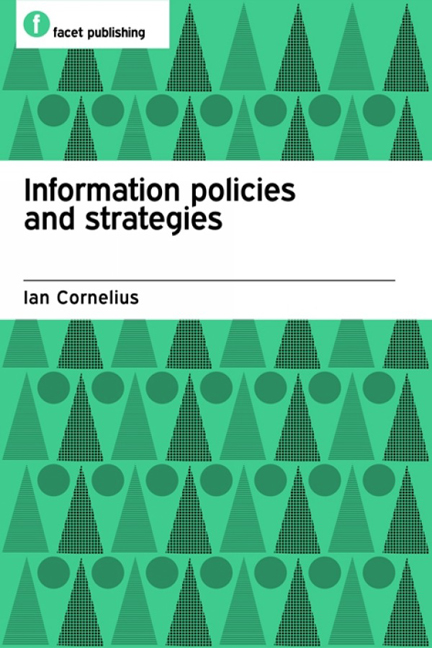10 - Final considerations
from Part 3 - Conclusion
Published online by Cambridge University Press: 08 June 2018
Summary
WE HAVE REVIEWED both macro and micro elements that influence the determination of information policy. There are other issues that we could have considered, most obviously the matter of how to determine the use of goods in common – that is, those that are limited in extent and which we all share. The broadcast spectrum is the commonly cited example of that. We have also taken the whole discussion from the viewpoint of a democratic society with a stable but powerful government and bureaucracy subject to some level of accountability to voters and legal procedures. Our discussion has also assumed that we are dealing with societies with effective, enforceable legal systems that are binding on all members of the society. The point about the law is threefold – first, that everyone lives ‘under the law’, second, that the law is an effective instrument, and third, that the spirit of the law that dictates the way the law is used is benign, reflecting a belief that law can be used as an instrument to bring about beneficial social change. The belief in the beneficial influence of law as an agent of social change has been available to us since the Enlightenment, but that view of law does not pertain in all societies, and in some instances law is still just an instrument of coercion.
Information policies in non-democratic societies
What do we say about societies where these points do not hold good? We can distinguish three types, which may not account for all instances but which certainly gives us some initial assistance in dealing with nondemocratic societies. First, there is the case where the normal institutions of a democratic society living under the law have broken down. In this case we can appeal to some previously held intention or understanding whereby although the prospect of immediate restitution of former values and practices is remote we can at least work with the spirit of those and gradually move back to a normal democratic environment as other conditions improve. Second, there is the case where these values never did exist and the apparatus of government is weak and lacks moral and effective coercive authority.
- Type
- Chapter
- Information
- Information Policies and Strategies , pp. 177 - 196Publisher: FacetPrint publication year: 2010



